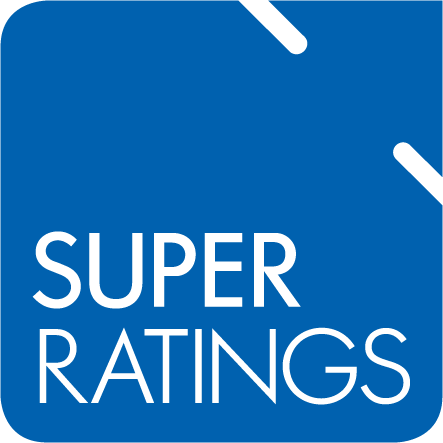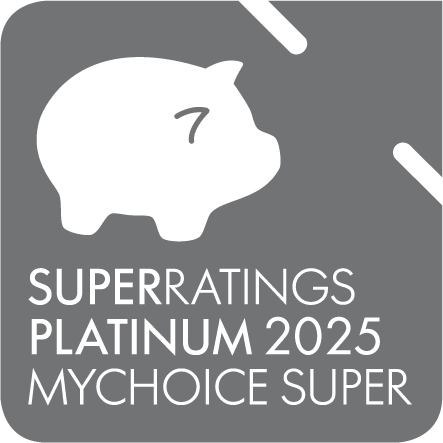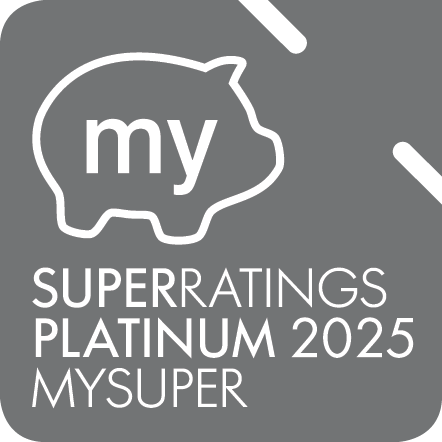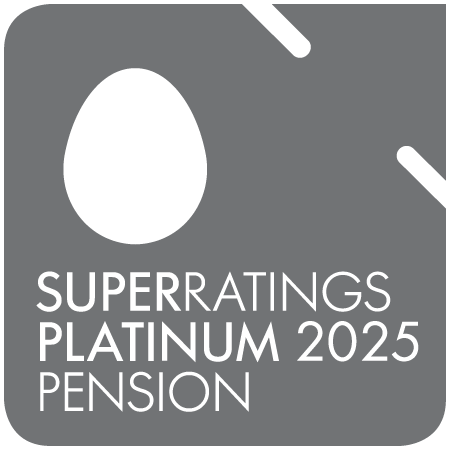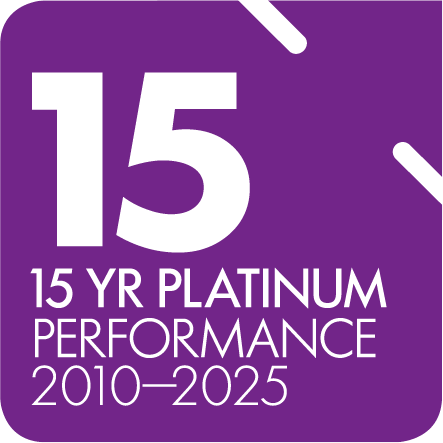Our commitment to excellence in governance is reflective of our intention to always act in the best financial interests of our members and to continue to build an innovative, responsive and customer-led organisation.
Governance framework
Our governance framework supports a culture of accountability which includes policies and processes to operate effectively and ethically in the best financial interests of our members.
The Board Charter sets out the authority, responsibilities and operation of the Trustee Board.
The Charter also guides and informs the Directors about their responsibilities and authorities when conducting the day-to-day business of the Board.
Board charter
PDF 229193 KB
The Trustee recognises the importance of the Board comprising Directors drawn from a range of personal and professional backgrounds, with diversity of personal characteristics and professional disciplines, including gender, ethnicity and geographic background, professional, business or occupational background and age.
The process for the nomination, selection and appointment of Employer Directors, Member Directors and Independent Directors, is detailed in our Board Appointment and Renewal Policy.
As a general principle, Directors are appointed for four-year terms and have a maximum tenure of 12 years.
This Policy also sets out the approach taken to manage the Board renewal, through effective succession planning processes that strikes an appropriate balance between ensuring continuity and bringing diversity and fresh perspectives, while recognising our obligations under the APRA Prudential Standards and the equal representation principles in the Superannuation Industry (Supervision) Act (the SIS Act).
In addition, this Policy provides the framework for the regular assessment of the performance of the Board as whole, Board Committees and Directors individually.
Board appointment and renewal policy
PDF 411274 KB
The Trustee is proud of its reputation as an ethical and professional company that aims to achieve the highest standard in everything it does.
The Code of Conduct (Code) applies to all employees, board directors and contingent workers and sets the expected standards of behaviour, actions and decisions. It provides a set of guiding principles for our people when facing difficult and complex situations and helps us to make good long-term decisions for our members, employers and fellow employees as well as underpinning our commitment to diversity and inclusion.. The Code requires that our people act with the highest standard of integrity and keep any information they are made privy to in their roles confidential. The Code also addresses:
- The management of conflicts of interest;
- The management of gifts, benefits and hospitality;
- Personal conduct;
- Our accountability framework in accordance with our obligations under the Financial Accountability Regime;
- Provisions in relation to the prevention of fraud;
- Misuse of company property; and
- Management and consequences of any breach.
We review our Code annually to ensure it is kept up to date.
Code of conduct
PDF 12138701 KB
The Compliance Management Framework forms a key part of the Fund’s risk management processes.
The Framework enables the Fund to manage its compliance obligations and to develop a culture where all Employees are aware of their compliance obligations and consider these obligations when performing their roles.
We take responsibility to identify and manage conflicts very seriously.
The proper management of conflicts is important in protecting the best financial interests of the members in order to comply with relevant legal obligations, to effectively eliminate or minimise the risk that a conflict might adversely affect the quality and integrity of the Trustee’s decision-making process.
The Conflicts Management Policy documents the framework for managing situations that may give rise to actual, potential and perceived conflicts of interests and duties and sets out the controls and processes for:
- identifying and monitoring conflicts;
- assessing and evaluating those conflicts;
- managing those conflicts in an appropriate, effective and consistent manner;
- maintaining a record of all identified conflicts and the strategies to avoid or manage them; and
- maintaining and disclosing the Register of relevant conflicts of interests and duties.
Further, the policy is intended to ensure that where a conflict cannot be avoided:
- the duties to, and the best financial interests of, members receive priority over any duties to, and interests of, other persons;
- the duties to members are met despite the conflict; and
- the interests of members are not adversely affected by the conflict.
Conflicts management policy
PDF 388193 KB
Register of relevant conflicts of interests and duties
PDF 967869 KB
The Fit and Proper Policy sets out processes to:
- determine fitness and propriety of all Responsible Persons to oversee performance and compliance with strategic objectives of the fund, and make decisions in the best financial interests of members;
- monitor consistent compliance with the APRA Prudential Standard SPS 520;
- identify the skills and experience of individual board members, as well as the collective skills and experience of the board as a whole; and
- be taken if a Responsible Person fails to meet the minimum fitness and propriety standards and is required to be removed from their position.
Everything we do for our people is driven by our purpose: to support our members to prepare for financial freedom in retirement.
We’ve built a culture that thrives and follows our organisational values, which establish the way we work. Our values are:
- Members first - we act in the best financial interests of our members;
- Accountability - we do what we say we will do;
- Respect - we care about each other and act with integrity and honesty; and
- Collaboration - we work together to achieve results.
To support this, we provide clear guidance on the ethical and behavioural standards we expect from our people. This is through policies, which we review regularly to ensure they comply with all relevant legislation and align with the broader employment landscape, so we continue to be an employer of choice.
The Trustee operates the following Reserves:
Operational Risk Financial Reserve
Established to meet the requirements of Superannuation Prudential Standard 114 ‘Operational Risk Financial Requirement’, this reserve is intended to provide financial resources to address losses that may arise from operational risks. The target funding level for this reserve is 25 basis points (or 0.25%) of total member entitlements. The reserve is monitored on an ongoing basis and replenished with additional funds in the event the balance falls below the tolerance limit.
Administration Reserve
Established to facilitate the finance of current and future operational requirements of the Fund, this reserve is available to meet both day-to-day operational costs as well as one-off approved expenditures considered to be in the long-term interests of members.
Investment Reserve
The Investment Reserve reflects the net investment earnings accumulated which have not yet been allocated to members. The daily value will represent the difference between the cumulative amount of net investment income (after fees and taxes) earned by the Fund and the cumulative returns provided to members via the unit price. The key component will represent the differences between the estimated tax rates utilised in the daily unit pricing and the actual investment tax experience of the Fund. This difference is trued up to the unit price on a regular basis.
Insurance Reserve
The Insurance Reserve is used to fund the future service component of the death and disability benefits of certain defined benefit members (historical self-insurance policies).
Our remuneration disclosure document details the remuneration structure for Directors and Executive Officers of the Fund.
Remuneration disclosure
PDF 270321 KB
The Risk Management Framework captures the principles and methodologies relating to risk management.
The Risk Management Framework deals with the following matters:
- Approach to Risk;
- Definition of Risk;
- Determination of Risk Appetite and Tolerance;
- Responsibilities for Risk Management; and
- Strategies for mitigating risk.
A Risk Register is maintained to record and assess risks.
The risk management standard AS/NZS ISO 31000 Superannuation Industry (Supervision) Act 1993 and APRA Prudential Standard SPS 220 – Risk Management were considered in the development of the Risk Management Framework.
Our service provider management policy provides an overarching methodology which outlines our approach to procurement, contract management, monitoring and oversight, and termination of service providers and their arrangements.
The policy also ensures that critical operations and material functions supported by service providers are effectively managed and that appropriate measures are in place to protect the best financial interests and meet the reasonable expectations, of members and to protect the financial position of the Fund.
The purpose of the Whistleblower Protection Policy is to encourage current and former employees, officers, contractors and suppliers to speak up when they see something that they do not believe is right.
We recognise that at times people may not feel comfortable raising matters through the normal management channels.
We have therefore implemented mechanisms whereby employees and others can report their concerns freely and without fear of repercussion.
Whistleblower protection policy
PDF 267451 KB
Additional information
This team leads the day-to-day operations of the business to ensure reliable and consistent delivery of products, services and communications to members and employers.
View Product Disclosure Statements (PDS) and Target Market Determination (TMD) documents.
Equip Super’s Retirement Income Strategy is an opportunity to build on what we do every day to help our members achieve their best possible retirement outcomes.
